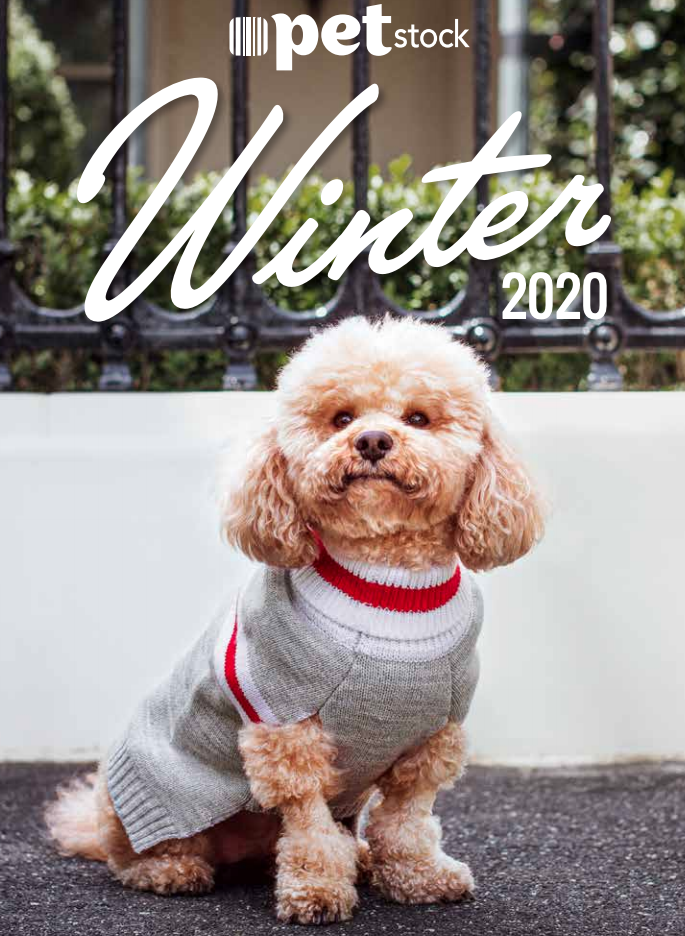Here’s some winter pet care tips to ensure pooch is pampered or your other furry things survive the winter in good health by PetStock Vet Dr Sasha Nefedova.
1. Preventing the risk of hypothermia
Pets should have the option to come indoors in winter and not spend too much time outdoors in the cold. Some pets are more physically prepared for the colder weather than others, for example a Husky will fare better in the cold than a Yorkshire Terrier. Pet owners should use their common sense and look out for the tell-tale signs of discomfort, including shaking, barking and whining – which could all be signs that your pet is too cold. Rabbits and Guinea pigs living in animal hutches should be brought indoors or to a dry and secure location such as the garage or laundry.
2. Winter warming wardrobe
Despite the change in weather, our furry friends still require regular daily exercise to keep in shape. A warm winter jumper or coat can keep them cosy on their winter walks and keep them snug throughout the day. Visit your local PETstock store for advice and sizing information for optimum comfort.
3. Blizzard-proof bedding
Your pet may spend more time lying down during the winter months, because just like us, the cold weather tends to slow them down to conserve energy and keep warm. Invest in a thicker, warmer bed in winter to make sure your pet has somewhere comfortable to lie down throughout the day and night. It’s important your pet has 24-hour access to a comfortable bed to call their own, so they know where their safe space to reside is.
READ RELATED
4. Winter conscious diet
Pets need a well-balanced diet and it’s particularly vital to maintain a healthy weight for your pet over the cooler months. If your cat or dog is overweight, it can lead to severe health conditions such as heart disease, joint problems and arthritis, respiratory problems, diabetes, skin issues and even premature ageing.
Ensuring your pet has a nutritious diet and regular exercise are key factors in maintaining their healthy weight. While you may want to spoil your pet and give them extra treats while spending more time indoors, over-feeding could cause weight gain or other health-related issues. If you want to feed extra treats to your pet throughout the day, asses how much your feeding them and give them less food at mealtimes to balance out the treats.
5. Maintaining exercise in winter
Ensuring your pet has regular exercise is necessary to maintain their optimal physical health and mental wellbeing. In addition to the obvious benefits, regular exercise for your four- legged friend can assist in reducing digestive problems and constipation, as well as build confidence in fearful dogs. Keeping your pet active and energised can also help reduce some common behavioural problems like anxiety, barking, digging and chewing.
6. Pet grooming in the cooler months
Untrimmed dogs, cats and rabbits with an extra-thick winter coat require regular grooming. A winter coat can hide trouble, such as lumps, bumps or sores; which is another good reason to keep brushing regularly. It can also help identify and control fleas and ensure that your pet’s coat does not become matted and uncomfortable. As you brush, feel and look carefully for signs of illness and check in with your local vet if you come across anything suspect.
Your pet will also love being affectionately fussed over when you groom them!
7. Winter health care
The colder it gets, the harder animals’ bodies need to work to fend off illnesses as they are expending more energy trying to stay warm. If your pet has an underlying health condition, this is a particularly important time of year to go to the vets to get a regular health check-up.
Senior pets are particularly at risk, and the most common ailment we see in senior pets is arthritis. Older pets are more prone to having osteoarthritis in the joints and when the temperature drops these aches and pains can be much more painful than during other seasons.
During winter, the combination of a heated home and pets that are indoors often provides the ideal breeding environment for fleas. It’s important to treat your pet all year round with a quality product such as Advantage or NexGard.
We hope that your winter pet care needs are now fulfilled. Please feel free to write and ask us any questions on winter pet care.




















Add Comment